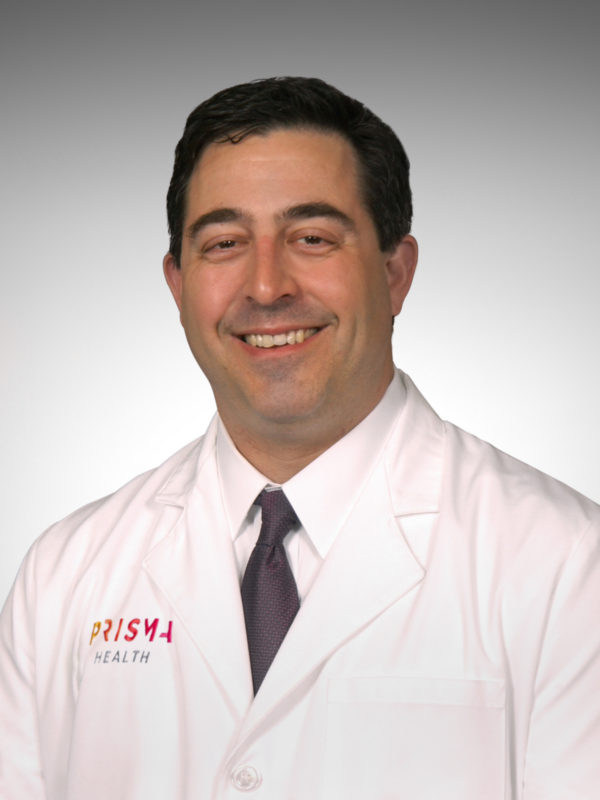What we are learning about obesity
Obesity is a problem that affects over 44% of the United States population. Although it was recognized as a chronic disease by the American Medical Association (AMA) in 2013, obesity can’t seem to shake its reputation as a lifestyle disorder that should be overcome with willpower.
John Scott, MD, a bariatric surgeon who is board certified in obesity medicine, explained what has been learned – and what we’re still learning – about obesity.
The obesity problem
According to South Carolina’s Department of Health and Environmental Control, South Carolina is ranked 13th in terms of the impact of obesity. “About 36% of our state have obesity,” Dr. Scott said. “If you include the percentage that is overweight, more than two-thirds of the state is not normal weight.”
Among adults aged 45 to 64, over 37% have hypertension and 13.8% have diabetes. They’re mostly female and Black or Hispanic.
Health care costs are 34% higher because of obesity – as much as $1.7 trillion per year.
“One of the biggest challenges we have is that Medicare does not cover anti-obesity medications or counseling with dietitians,” Dr. Scott said. “We’ve partnered with the AMA, the Obesity Society and the American Academy of Family Physicians to advance a bill called TROA, which is the Treatment to Reduce Obesity Act, trying to get the federal government to start covering anti-obesity medications and counseling for diet and exercise for the Medicare population. This bill has been stalled in Congress since 2015.”
What causes obesity?
Dr. Scott said there are many factors, including:
- Technological advances that make life easier like remote controls and garage door openers.
- Comfort eating.
- A lack of basic understanding about nutrition.
- Genetic factors.
- High sugar, high fat diets and fast food.
- Limited opportunities for exercise in the community.
“Another problem is there are many places that are considered either food deserts or food swamps, which are areas with zero healthy food choices,” Dr. Scott said. “The only food options within five to 10 miles are sold at a convenience store, and you can imagine the lack of healthy food choices that are available.”
Also, our bodies are not built to eat all the time.
“The human body is a wonderfully built machine, but it’s designed to not have food at all times,” he said. “We were designed to not know when the next meal was going to come. We had to store food as energy and whenever we consumed excess calories, it was stored as fat. We have hormones that are designed to encourage this process, and these hormones impact our level of obesity.”
He called the brain the “director” or “thermostat” that senses how much energy the body has and decides whether to store or burn calories.
“When you get to a level of obesity, your brain sets the thermostat at a higher rate and is going to try to defend that higher weight by making you feel hungry.”
He said the only way to change that is to reset the brain to a lower setpoint, so the body is defending a lower weight.
What health problems are caused by obesity?
Obesity leads to chronic disease which leads to death. In fact, it can decrease your lifespan by about 15 years.
Obesity is divided into three categories:
- Morbid obesity, which is a body mass index (BMI) over 40.
- Severe obesity, a BMI of 35–39.9.
- Obesity, a BMI of 30–34.9.
Some of the health consequences of obesity include:
- Migraines.
- High cholesterol.
- Diabetes. You have a 30 times higher risk of developing Type 2 diabetes if you’re overweight.
- High blood pressure.
- Sleep apnea.
- Cancer. Breast bowel, uterine and prostate cancer are markedly elevated if you’re overweight, especially breast cancer.
“Obesity also impacts what you’re able to do and enjoy, such as going to amusement parks, playing with your children and traveling,” Dr. Scott said. “All the things you do socially are impacted when you’re suffering from the disease of obesity.”
How can obesity be treated?
“The old theory was, if you just eat less and exercise more, you’re going to lose weight, but that doesn’t always work,” Dr. Scott said. “We now know that there are other things in play, such as genetics and hormones.”
People who are in the lower overweight BMI categories can usually see success with medical management and lifestyle modification. But once a BMI of over 30 is reached, weight loss surgery is a good option.
“Especially if you get a BMI over 35 and you already have some medical problems that are due to your weight, such as Type 2 diabetes, COPD or liver disease, then surgery becomes more of an option,” Dr. Scott said.
Two of the main weight loss surgery procedures are the sleeve gastrectomy and gastric bypass.
The sleeve gastrectomy is an operation where about 70% of the stomach is removed. There’s a hormone produced in that part of the stomach called ghrelin, and when that part of the stomach is removed, it makes you feel less hungry.
“It gets really good weight loss – almost 60% of excess body weight,” Dr. Scott said. “So, if you’re 100 pounds overweight, you can expect to lose about 60 to 70 pounds.”
It’s also a relatively low-risk procedure. Patients typically leave the hospital the day after surgery, and there are very few long-term consequences.
It can be ideal for people who have had a major surgery or have a high-risk medical problem, but it’s not for people with reflux disease as it could potentially make it worse.
Gastric bypass is an operation that has been around since the 1960s. It involves making a small gastric pouch about the size of a golf ball.
“Once we create that small stomach, we take a piece of intestine and bring it up to the stomach and connect it to that pouch,” Dr. Scott said. “Food will go down into the pouch and you’ll feel full with a small amount of food.”
Patients can lose more weight with this operation, about 70 to 80% excess weight loss, and it has more profound effects on medical problems like diabetes, high blood pressure and sleep apnea.
“It’s a more robust operation, but it’s also a little riskier with some potential for more problems down the road, such as the development of ulcers and potential bowel obstructions,” Dr. Scott said. “But it does have a greater impact, especially on diabetes.”
In addition to better quality of life and reduced mortality, studies have shown a 65% resolution in cholesterol, an 83% resolution in Type 2 diabetes, an almost 80% reduction in PCOS, a 90% reduction in reflux, and a 70–80% reduction in sleep apnea.
Who’s a candidate for weight loss surgery?
To qualify for weight loss surgery, you must:
- Have a BMI of over 35 or a BMI over 30 with at least some medical conditions related to weight.
- Have had obesity for over three to five years.
- Have tried and failed at losing weight utilizing other means.
“To make sure you’re a safe candidate, we look at medical conditions, mental health, support, mobility and other factors that are specific to patients, such as insurance,” Dr. Scott said. “The preparation time takes about one to three months.”
There’s no upper age limit, but patients are usually between ages 40 and 55.
Is it possible to gain weight back after the surgery?
Dr. Scott said about 30% of patients do gain their weight back.
“The human body is a wonderful, calorie absorbing machine, and so a lot of what we do involves education,” he said. “With our program, patients have about 10 hours of preoperative training, which includes education about diet, motivation and addiction, before they’re even eligible for surgery. They’ll meet with our counselor, a psychologist and a dietitian. And then we have support groups both before and after surgery. They’ll also meet with us regularly so that we can monitor their progress and head off any problems.”
Is weight loss medication a good option if you don’t want surgery?
“The medications are definitely catching up,” Dr. Scott said, “including a whole class of medications called GLP-1 analogs.”
Examples are the medicines Wegovy and Zepbound. But high prices and lack of availability have been barriers. Dr. Scott is hopeful prices will go down as more medicines become available.
“There are about three other medications coming out on the market in the next few years that are highly competitive with the weight loss that you get from the sleeve surgery, but they’re not competitive with gastric bypass yet,” he said.
Find the care you need, close to home
Our primary care physicians provide well visits and everyday care when you need it with compassion and expertise.
Find Primary Care Near You

